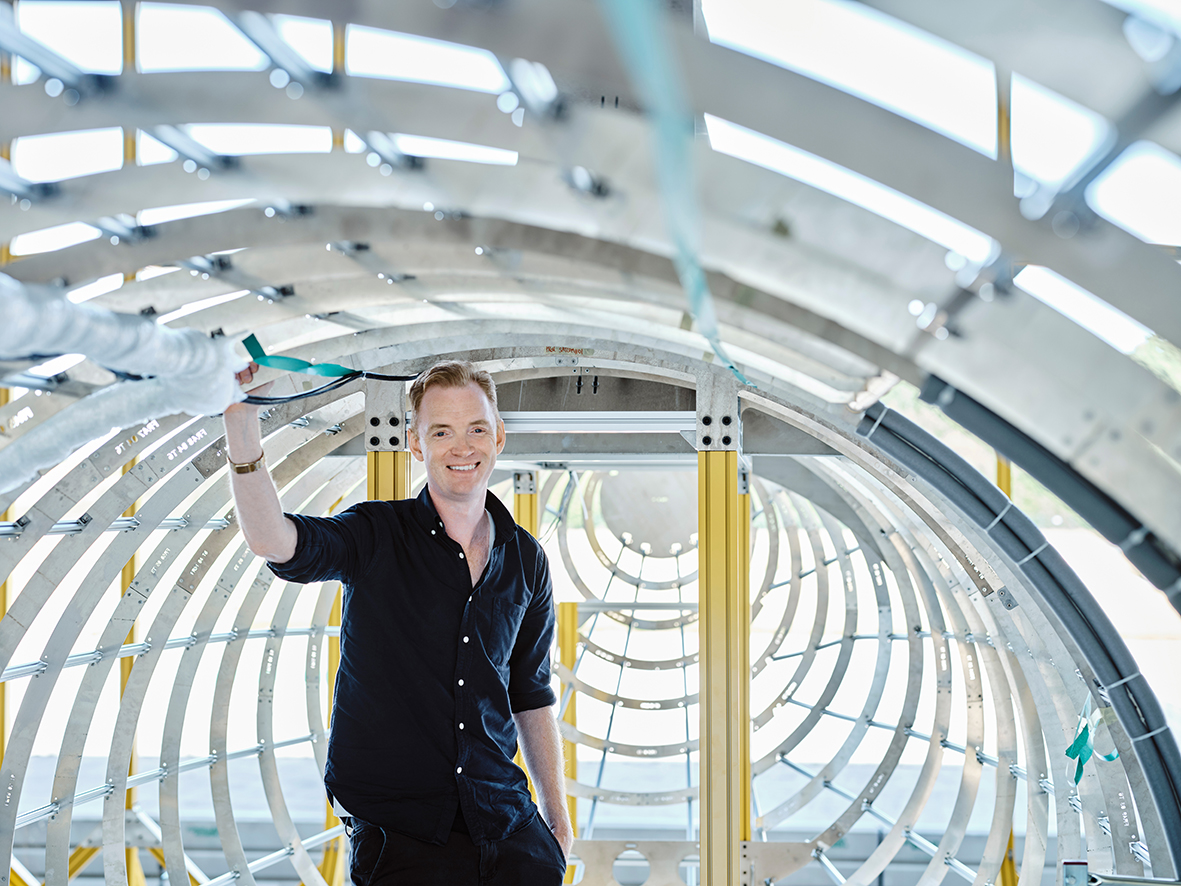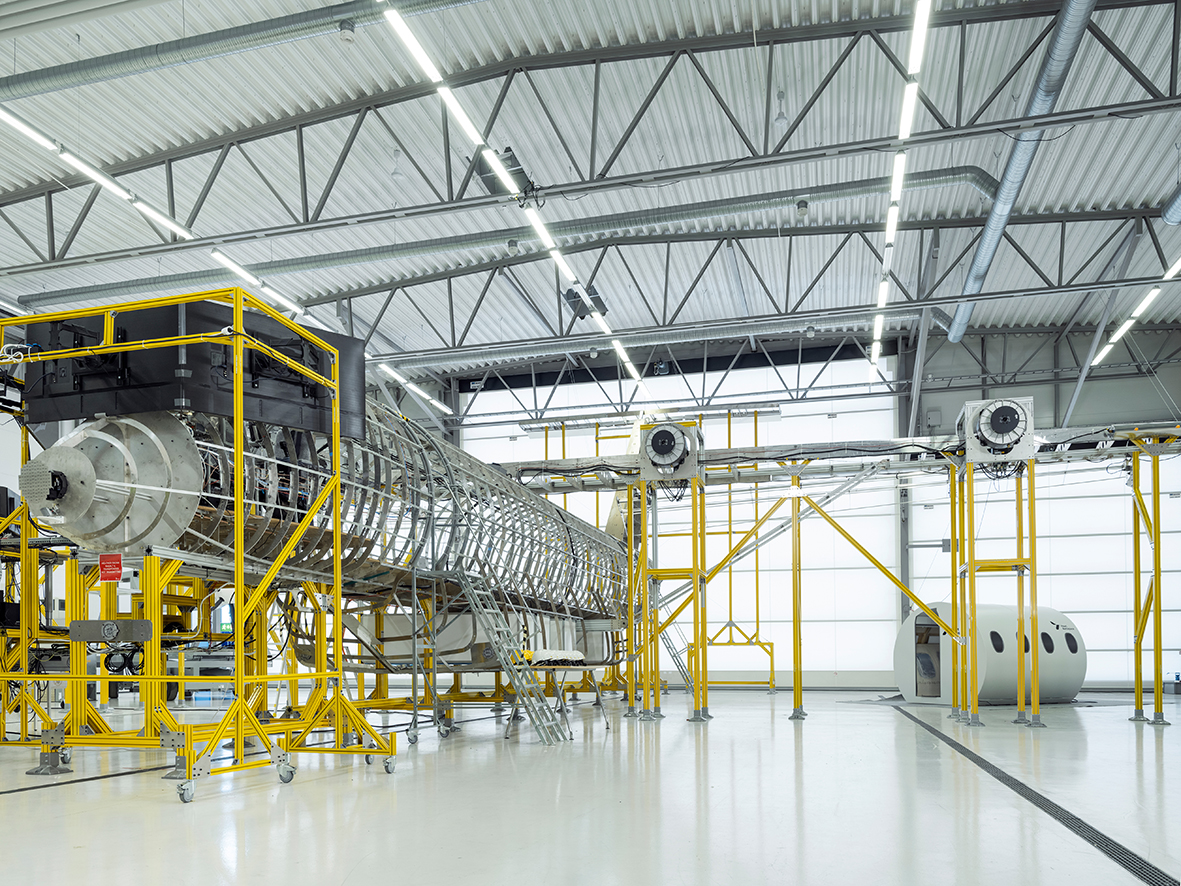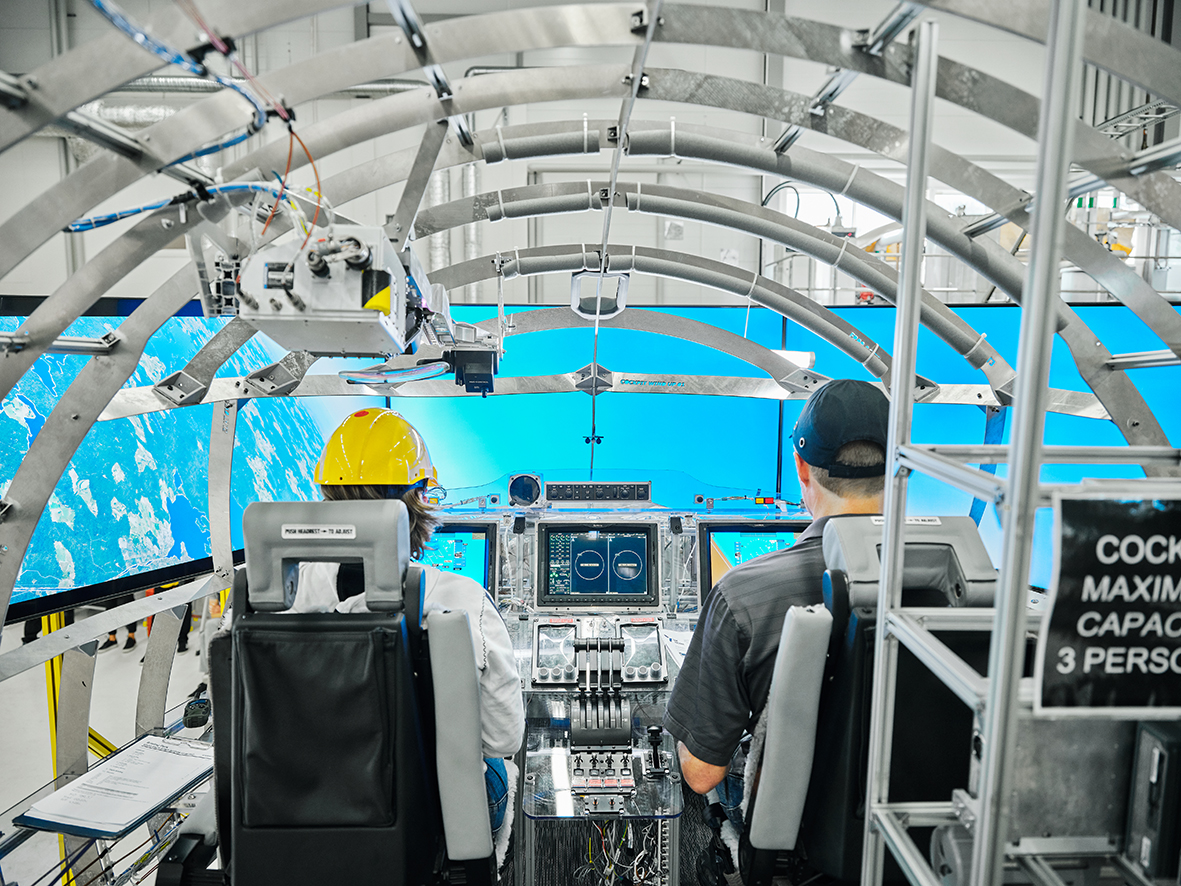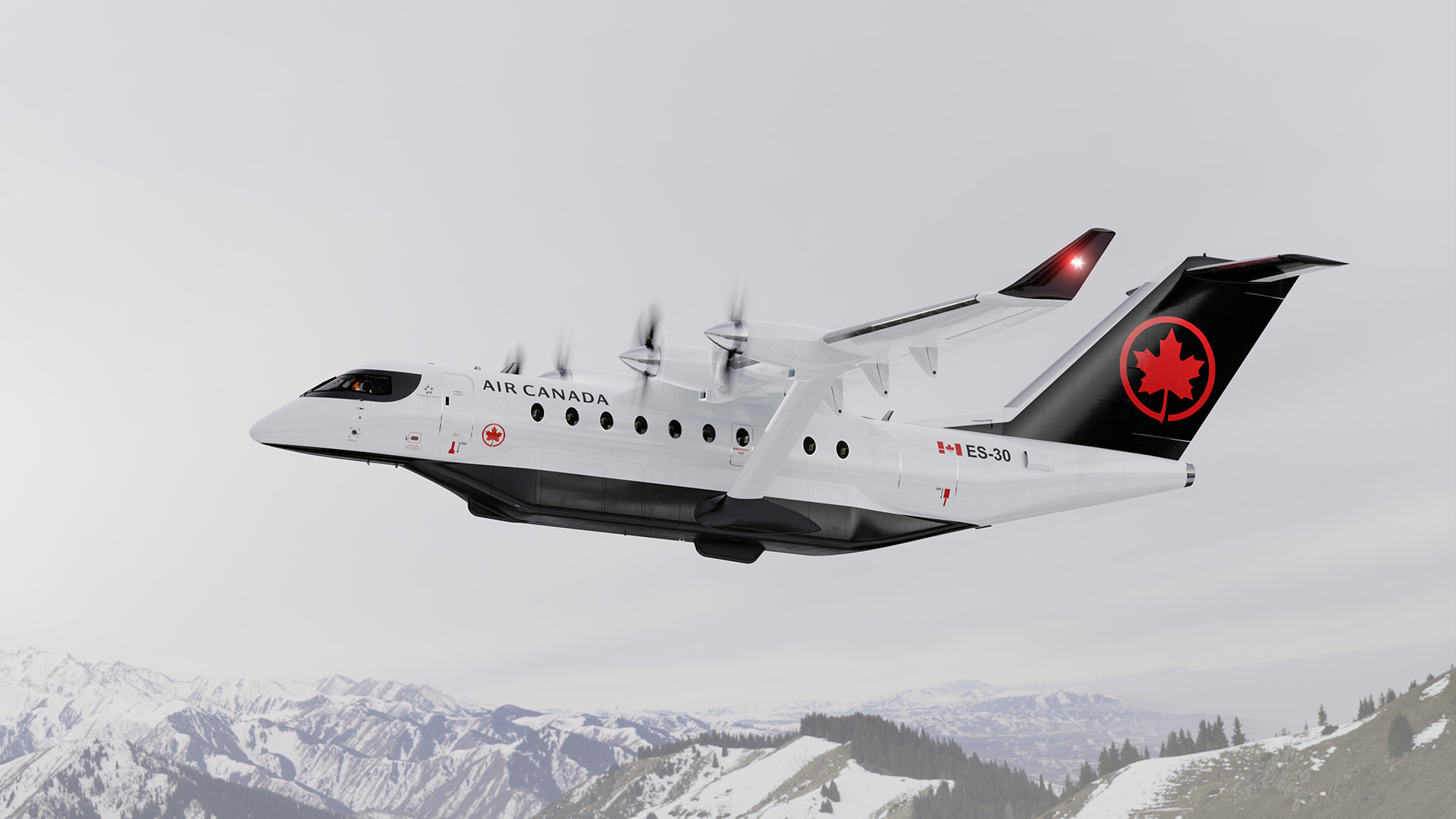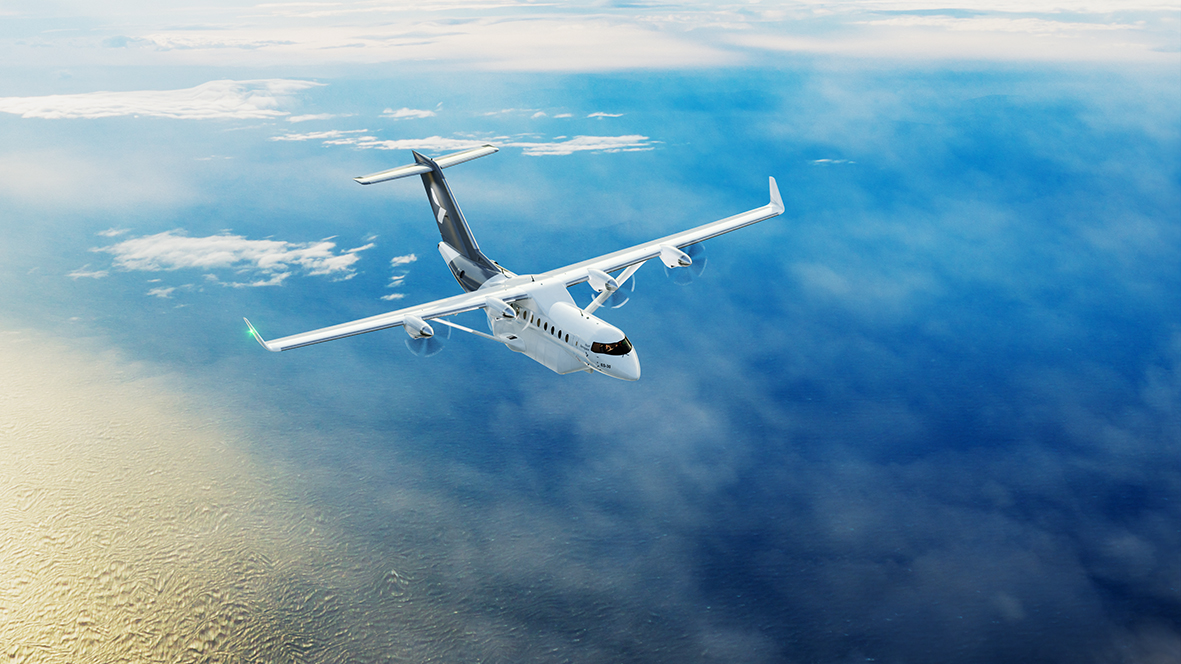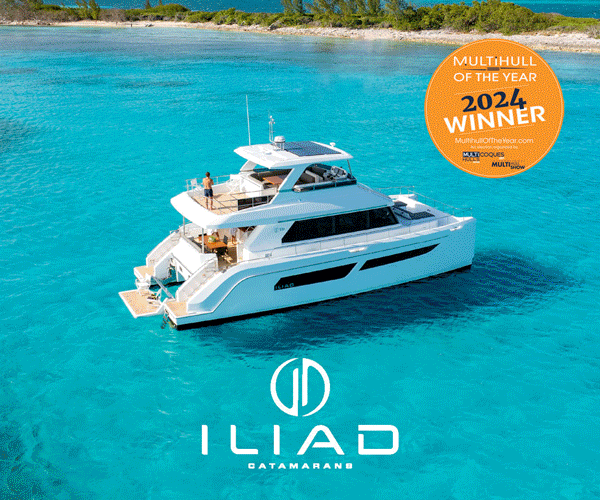Heart-felt flying
Several of the world’s major airlines are investing in the Heart Aviation fully-electric passenger plane, known as the ES-30.
14 December 2022
Swedish start-up, Heart Aerospace has designed a fully-electric passenger plane, the ES-30, which can carry up to 30 people, has a range of 200km and can recharge its batteries in just 30 minutes.
Replacing the previous ES-19 model, the ES-30 is driven by electric motors powered by batteries, which allows the airplane to operate with zero emissions and low noise.
United Airlines and Air Canada have already put in orders for the ES-30 electric plane that can be fitted with turbogenerators that use jet fuel to power its four electric engines, thus doubling its range with this hybrid configuration.
Short-range commercial planes are beginning to make sense due to advancements in battery technology.
As a result, several start-ups, among them Heart Aerospace, are developing viable electric aircraft, and some are beginning to attract the interest of large airlines.
Heart Aerospace has worked with other big airlines before Air Canada. For example, United Airlines and its regional partner Mesa Airlines announced an order for 200 ES-19 planes in July 2021. The US-based airline plans to start flying them in 2026.
A few weeks ago, United Airlines also purchased 200 Embraer EVE Electric VTOLs.
“The ES-30 is an electric airplane that the industry can actually use. We have designed a cost-efficient airplane that allows airlines to deliver good service on a wide range of routes,” said Anders Forslund, founder and CEO of Heart Aerospace.
“With the ES-30 we can start cutting emissions from air travel well before the end of this decade and the response from the market has been fantastic.”
Air Canada has ordered thirty ES-30 electric-hybrid aircraft from Heart Aerospace, intending to have them flying regional and commuter routes by 2028. Additionally, the Montréal-based airline will have a US$5 million equity stake in the company. Other investors include the Bill Gates-backed Breakthrough Energy Ventures.
Michael Rousseau, the CEO and president of Air Canada, said “The introduction into our fleet of the ES-30 electric regional aircraft from Heart Aerospace will be a step forward to our goal of net zero emissions by 2050.”
According to Heart, the ES-30 will have an all-electric range of about 124 miles, which can be doubled with the hybrid engine and quadrupled if there are only 25 passengers instead of its standard 30. The ES-30 will be held in the air by four lithium-ion battery-powered propeller motors with turbogenerator reserves.
“The ES-30 has comfortable three-abreast flat-floor cabin seating, and it features a galley and a lavatory. In addition, cabin stowage and overhead bins will add to the large external baggage and cargo compartment and provide airlines with network flexibility.”
Anders Forslund, the CEO and founder of Heart, said that Air Canada is a “strategically important company” as it already has one of the largest networks of regional turboprops in the world.
Air Canada’s efforts to go greener in electricity-friendly short routes are also reflected in other initiatives, such as regional flights around Hawaii using electric “seagliders,” which are expected to begin operation in 2025, and Spanish airline Air Nostrum’s intentions to fly the Iberian skies in airships.
Air Canada and Saab have each invested USD 5 million in Heart Aerospace. In addition to its investment, Air Canada has also placed a purchase order for 30 ES-30 aircraft.
“We are thrilled to have two such strong partners as Saab and Air Canada join our mission to electrify regional air travel,” said Anders Forslund, founder and CEO of Heart Aerospace.
“Growing up in Sweden, Saab is synonymous with aerospace, and our partnership will not only support our program but help us to become a part of the proud Swedish aerospace heritage.
“Air Canada is a strategically important partner with one of the world’s largest networks operated by regional turboprops, and as a progressive, future-leaning company.”
“Air Canada is very pleased to partner with Heart Aerospace on the development of this revolutionary aircraft,” commented Michael Rousseau, President and Chief Executive of Air Canada.
“We have been working hard with much success to reduce our footprint, but we know that meeting our net-zero emissions goals will require new technology such as the ES-30.
“We have every confidence that the team at Heart Aerospace has the expertise to deliver on the ES-30’s promise of a cleaner and greener aviation future.”
“This underlines our commitment to innovative technology and solutions for sustainable aviation,” added Micael Johansson, Saab’s President and CEO.
“Heart is a pioneer within commercial electric aviation, and we look forward to contributing to the future of aviation with our experience of developing solutions at the forefront of technology.”
Previous orders for Heart Aerospace’s ES-19 electric airplane, placed by United Airlines and Mesa Air Group for a total of 200 electric aircraft with an option for an additional 100 planes, are reconfirmed for the updated ES-30 design.
“From the beginning Heart and United have been on the same page – with an acute focus on safety, reliability, and sustainability,” said Scott Kirby, CEO of United Airlines.
“Heart’s exciting new design – which includes expanded passenger capacity from 19 to 30 seats, and a state-of-the-art reserve-hybrid engine – is the type of revolutionary thinking that will bring true innovation to aviation.”
In addition to those commitments, many of the ES-19 letters of intent (LOI) holders have already updated their respective letters to reflect the ES-30.
These include the Nordic airlines Braathens Regional Airlines (BRA), Icelandair and SAS as well as New Zealand’s Sounds Air. Rockton, a Swedish-based lessor who has made it their mission to focus on sustainable solutions for the Industry, has just signed an LOI with for up to 40 airplanes. In total, Heart Aerospace has LOIs for 96 ES-30s.
The ES-30 is a cost-efficient airplane that, on top of significant fuel savings, is cheaper to operate than a larger turboprop due to its electric propulsion. The airplane has also been designed to accommodate battery technology evolution, which will increase its fully electric range and make it even more cost-efficient over time.
The ES-30 is expected to enter into service in 2028.




